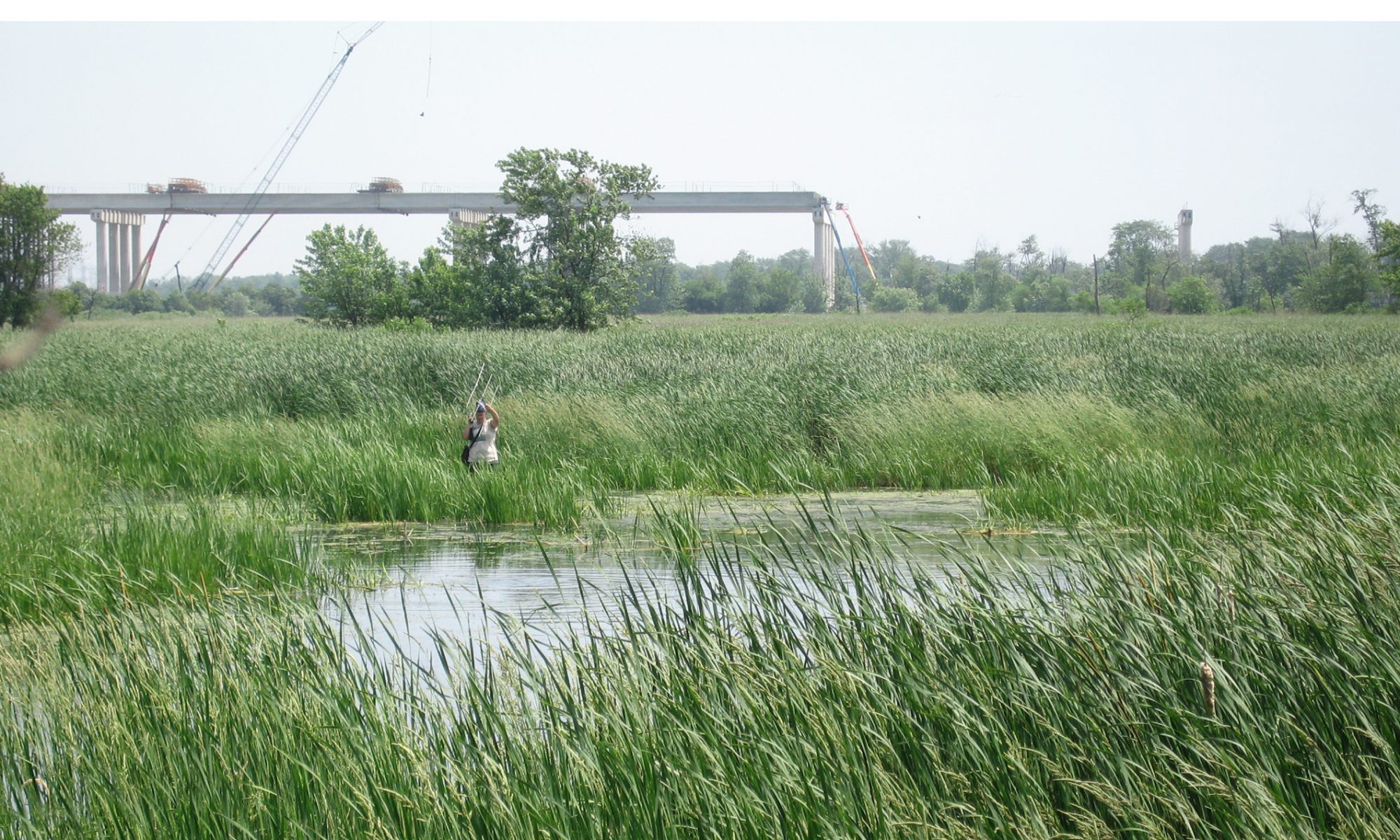Mussels are commonly relocated short distances to minimize impacts from in=stream construction, but no quantifiable data on their survival existed.
Before the I-90 bridge over the Kishwaukee River was replaced, we experimentally relocated 2 common species: Mucket and Plain Pocketbook. We marked 100 mussels with passive integrated transponders (PITs), released them ~200 m upstream of the construction site, and monitored them monthly throughout the spring and summer of 2013–2015.
Our models estimated apparent survival was lowest during the first 2 months after relocation but increased and stabilized thereafter, predicting 93% of the relocated Muckets and 71% of the Plain Pocketbooks remained alive 3 years post-relocation.
Based on this study, short-distance relocations are a viable tool for minimizing impacts on freshwater mussels at bridge construction sites, but further study is needed to examine the factors driving the initial mortality (Tiemann et al., 2016).
Publications
Tiemann, J. S., M. J. Dreslik, S. J. Baker, and C. A. Phillips. 2016. Assessment of a
short-distance freshwater mussel relocation as a viable tool during bridge construction projects. Freshwater Mollusk Biology and Conservation 19:80–87.
